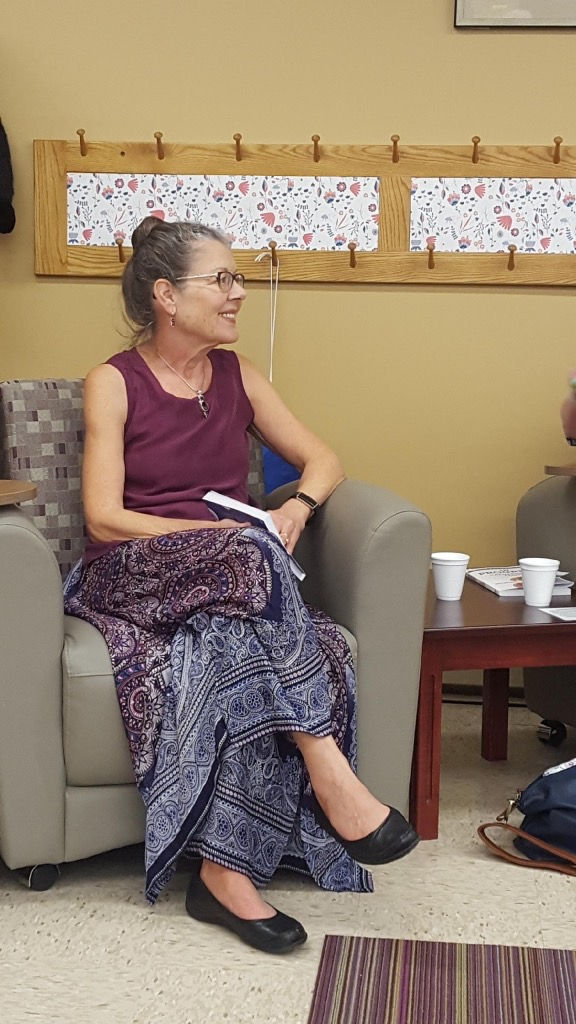The magic in names: slavery and my family
- melissa39316
- Dec 3, 2023
- 4 min read
Jul. 16, 2015

My brother Michael remembers Noni, our paternal grandmother, asking him, “Don’t you think it would be just terrible if you had to go to school with little colored boys and girls?” This would have been in 1954, just after Brown vs. the Board of Education; Mike would have been nine at the time. He remembered thinking about the black boys he played with at the swimming hole and in the park -- about Dave and Frank and Harry -- and said no, he wouldn't mind. He thought it would be kind of fun.
By the time I knew Noni, she was slip-sliding down into the slough of senility, thanks to a decades-long drug habit. I didn’t dislike her, but I didn’t exactly love her either. Dementia is never endearing and perhaps I sensed the hostility between her and my mother, although I was not to understand the considerable animus between those two until I was an adult. And then there was Noni’s every-Christmas-without-fail gift to me -- a set of three gi-normous old lady panties. This was a gift to which I took considerable umbrage. Did my grandmother really think my ass was THAT big?
If my brain were an attic, in one part of that attic, tucked away down under the eaves, you’d find a mildewed hatbox full to bursting with mouldering confederate money, a battered steamer trunk stuffed with moth-eaten petticoats and tattered ball gowns and, a musty, dog-eared history of the Eastern North Carolina branch of the Hardy family published in 1964 by one David Hardee. Hardee, Hardie, Hardy – we’re all the same family; it was just that some of us could spell and others not. Lately, I’ve been poking around in that old corner of the attic, stirring up dust, sending up ragged clouds of moths, sifting through old mouse poop in an attempt to understand my family in the context of history and of race.
Which was how I stumbled upon an inventory of the Bertie County, North Carolina estate of my forebear William Hardy. According to a will drawn up in 1793, the estate included:
Farm equipment -- saws, fire tongs, shovels, hoes;
Produce – corn, potatoes, salt, flour, flax, cotton;
Livestock – 5 horses, 34 cattle, 15 sheep, 14 sows, 65 pigs and 47 other hogs, 22 chickens, 25 turkeys and 47 other fowls, 4 stocks of bees, a yoke of oxen;
Books – a Bible, Prayer Book, 3 volumes of Mares arithmetic, Harvey’s Meditations;
Furniture – tables, table cloths, chests, 4 beds, 2 pillows, 12 chairs, pots, pans, candles, candle snuffers, candlesticks, glasses, plates, knives, forks;
Tools and supplies-- one file, one surveyor chair, money scales, 5 spinning wheels, 5 pairs of cards, carpenter tools, 1 cart, 67 weight of pewter, 2 saddles, 2 bridles, 2 grindstones, tailor shears, looking glasses, mill picks, writing paper, 40 barrels of turpentine, 1 bag, 2 wallets, 2 towels, guns
It also included, “Negroes as follows: Dave, Frank, Harry, Tom, Abram, Ben Rofe, Wink Bett, Brutus, Andrew, Daniel, Simon, Peter, Matt, Abram, Woman Bell, Woman Penn, Girl Rose, Girl Easter, Girl Polly.”
According to the will, the slaves were to be divided between William’s wife Sarah and his children. Only the sons got land, but everybody “received” one or two in slaves in formulations that read like this:
“Sarah Sutton received Matt and Simon and other sundries worth 118 pounds, 8 shillings and 8 pence.”
“Lamb Hardy received his 1/6 part of the land, negro boy Daniel, and other sundries worth 118 pounds, 8 shillings and 12 pence.”
It was their names that got me. You don’t think of a slave being named Dave, for example, or Frank or Harry and yet Dave and Frank and Harry they were and Penn and Rose and Easter and negro boy Daniel . . . and they were passed down from father to child in the same breath as forty barrels of turpentine (William was a cooper by trade) or a yoke of oxen. According to a Census of Bertie County taken some 67 years later in 1860, Ellinor Hardy, Humphrey Hardy and Jason Hardy all owned slaves -- 79, 33 and 39 respectively -- but these were merely enumerated; they were not named. The fact that I know the names of William Hardy's slaves makes them more real for me. Whereas Noni lamented a future in which her precious grandson might have to go to school with nameless “little colored boys and girls,” Michael knew the names of his playmates and did not find the prospect of associating with them in any way problematic. There is a kind of magic in names.
If I believed in God, I would ask Him for forgiveness -- for generations of my family going back three centuries, for my demented. racist grandmother, and for myself. But I don't believe in God, so, instead, I'm sending this out across the arc of history, across the span of 220 years that separates us in time: Dave, Frank, Harry, Tom, Abram, Ben Rofe, Wink Bett, Brutus, Andrew, Frank, Simon, Peter, Matt, Abram, Bell, Penn, Rose, Easter, and Polly, I am sorry and I'm ashamed.
And now it’s high time I clean out that bloody attic.


Comments